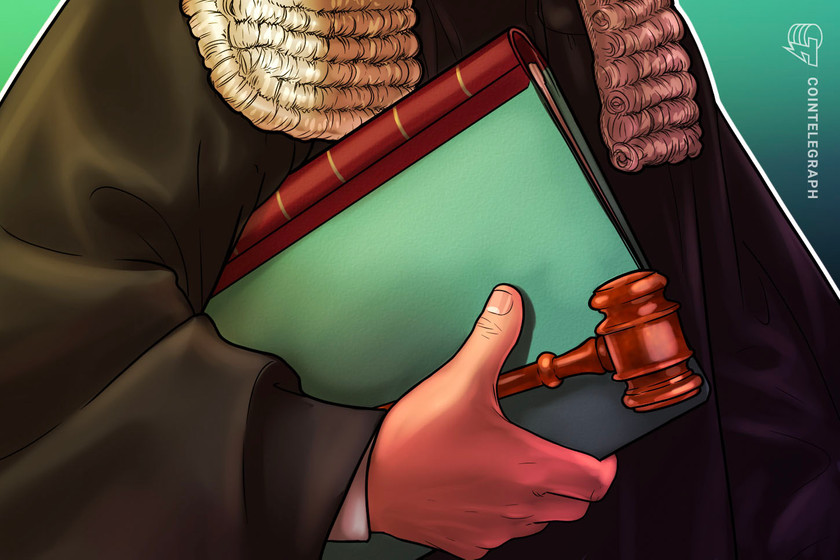BlockCrushr drops lawsuit accusing ConsenSys of stealing its IP

ConsenSys described the case’s conclusion as highlighting “the value of aggressively combatting meritless claims.”
Canadian blockchain startup BlockCrushr has agreed to drop an intellectual property (IP) lawsuit against early backer, Ethereum-focused software engineering firm, ConsenSys.
The two firms filed a joint agreement to dismiss the case on July 27, with the deal’s terms prohibiting BlockCrushr from attempting to pursue the matter in future.
ConsenSys has characterized the agreement as a victory for its position, stating: “BlockCrushr has dismissed the lawsuit with prejudice after review of the evidence provided in discovery established that BlockCrushr’s claims were entirely without merit.”
ConsenSys’ lead counsel, Tibor Nagy, added:
“This is an important and complete victory for ConsenSys and illustrates the value of aggressively combating meritless claims.”
Filed in July 2020, the complaint claimed ConsenSys launched its “Daisy Payments” recurring payments platform the day before BlockCrushr had planned to bring its own product to market in June 2019.
BlockCrushr had received a $100,000 investment from ConsenSys and was admitted into its Tachyon accelerator program. The startup alleged that ConsenSys used trade secrets gleaned through the program to front-run its own product to market before BlockCrushr.
BlockCrushr claimed that “every aspect of its marketing, financial, technical and regulatory strategy” was shared with ConsenSys during the Tachyon program, including “the source code and proprietary technical solution to its recurring payments platform.”
While IP enforcement has been seen as antithetical to crypto’s core ethos of decentralized open-source development, intellectual property matters have emerged as an increasingly hot issue.
In June, major decentralized finance protocol Curve saw a proposal posted to its governance forums advocating that it should move to protect its software license and redistribute profits from IP enforcement to tokenholders.
In addition to protecting its position in the market, the post’s author asserted IP enforcement will benefit Curve by reducing competition for bug bounty payments and employee recruitment pertinent to its code.
In launching its highly anticipated v3 iteration, leading decentralized exchange Uniswap introduced a “business source license” into its code to protect against the unauthorized commercial use of its code “for up to two years.” The move was intended to prevent clones from appearing, after SushiSwap and other rival DEXes forked its v2 code and launching vampire attacks designed to siphon away Uniswap’s liquidity during the DeFi summer of 2020.
Attempts by the notorious self-proclaimed Satoshi Nakamoto, Craig Wright, to prevent websites from hosting the Bitcoin Whitepaper have attracted widespread pushback from the crypto community. Wright has also embarked on a campaign to secure as many patents as he can.
In April, the Square-led Cryptocurrency Open Patent Alliance (COPA) launched a lawsuit requesting the U.K High Court to declare that Craig Wright does not have copyright ownership over the Bitcoin Whitepaper.



